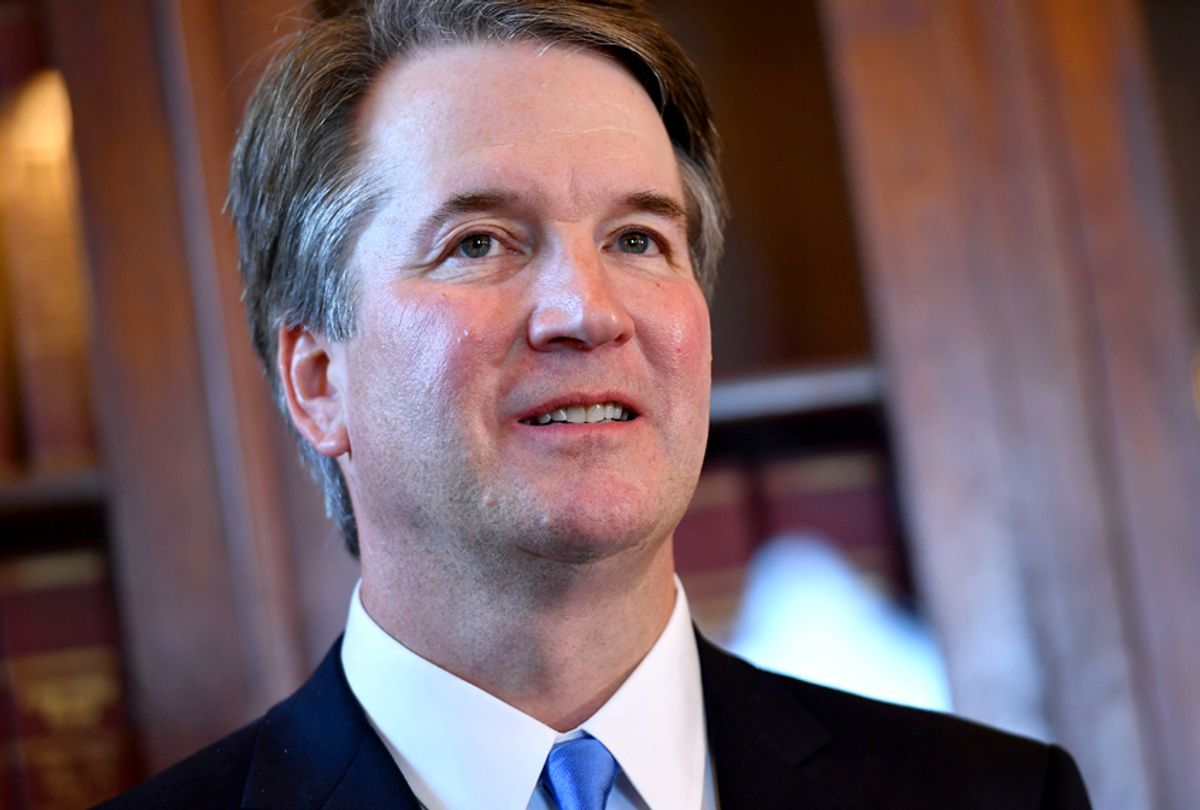Trump’s hyped “reality TV” moment has passed. Now we have predictably conservative Brett M. Kavanaugh as Supreme Court justice nominee – a choice guided by the not-so-invisible hand of the right-leaning Federalist Society and the Heritage Foundation. As we have been hearing unceasingly, it is an announcement that likely will set the court on a right-leaning bent for two decades.
We understand, too, that the question now moves to the Senate where best predictions are that after organized opposition from Democrats and defenders of expansionist civil rights of all sort, the very narrow Republican majority will prevail. The hearings to come undoubtedly will be an exercise in frustration since Kavanaugh, 53, who seems to be an intelligent, affable man who just happens to play for the other side, will say as little as possible that could prove damaging.
I have to commend Trump, who played this perfectly: He got a nominee who, on paper and in real life, is well-trained, experienced, politically aware, knowledgeable, appealing and who has that Federalist Society stamp of approval. But in sifting through all the coverage about Kavanaugh, Trump not only met his own campaign promises, he also got a particular defender of presidential power – and someone who believes that the president, any president, is too busy saving the world to be worried about defending himself against any possible criminal or civil legal challenges, per an article Kavanaugh wrote for a law review.
Hmmm. I wonder why Trump took even 10 days to decide. It sounds as if it is about Trump rather than the court or the nomination politics.
Perhaps the delay came from stain earned when Kavanaugh (and his wife, Ashley) had worked as staff secretary for former President George W. Bush, the family Trump, um, dislikes.
However, here’s the critical takeaway we will be hearing a lot about in coming weeks. Kavanaugh’s work in the White House helped shape his views, he wrote in a law review article, The New York Times reported. “My chief takeaway from working in the White House for five and a half years . . . is that the job of president is far more difficult than any other civilian position in government” and sitting presidents should not be distracted by civil suits or criminal proceedings. “A president who is concerned about an ongoing criminal investigation is almost inevitably going to do a worse job as president,” he wrote, saying such cases could resume after impeachment, if necessary.
In other words, it looks as if Trump picked someone who likely stands ready to help him avoid or delay dealing with Special Counsel Robert S. Mueller III. After all, Kavanaugh also helped write large portions of then-Special Counsel Ken Starr’s report leading to impeachment charges of former President Bill Clinton.
As such, this is likely an area that challengers will hit hard. Would he recuse himself from special counsel-related issues involving Trump, who just nominated him? Would he vote against requiring that Trump submit to a Mueller interview?
Kavanaugh has a boatload of decisions in 12 years as a federal appeals court judge in Washington, D.C., where he shared work with Merrick Garland, who had been Barack Obama’s choice for the same job. That court is generally considered the second most important in the country, though its cases tend to deal more with complex administrative law issues rather than those social issues like abortion that are sparking the opposition. In his opinions, Kavanaugh often was skeptical of government regulations, notably in the area of environmental law, and he has argued in favor of greater judicial power in reviewing the actions of administrative agencies – something seemingly at odds with the oft-repeated “strict constructionist” philosophy he claims.
So, he says he believes in established law, and favors government actions – when he wants. A few cases tend to show this:
- In 2011, he dissented from a decision upholding Obamacare, but he did so by arguing that it should have been Congress that pushed the law rather than the president.
- In a dissent in January from a decision upholding the structure of the Consumer Financial Protection Bureau, he offered an endorsement of executive power, toward allowing the president to change the agency.
- At a 2016 argument over climate change regulations, Kavanaugh indicated that environmental policy should be decided by Congress rather than the courts.
There is no way to know whether he will vote to overturn abortion rights. More likely, he will support state laws to continually limit the right. We will end up with a checkerboard approach to such issues.
A New York Times review of his writing shows that Kavanaugh has been willing to use the First Amendment to strike down government regulations, like net neutrality. The analysis showed Kavanaugh’s opinions on abortion rights, religious exemptions and health care were conservative, but avoided absolutist positions. Last year, he dissented from a decision allowing an undocumented teenager in federal custody to obtain an abortion, arguing that doing so was making new law rather than applying current law in which abortion is legal.
In its analysis, The Washington Post found. Kavanaugh “robust on the powers of the president, consistently siding with arguments in favor of broad executive authority during his 12 years on the bench in Washington. The newspaper said that Kavanaugh has staked out conservative positions in cases involving gun rights, abortion and the separation of powers. He has upset regulations over air pollution, but then upheld EPA rules to limit emissions from trucks.
Kavanaugh’s confirmation to the appellate court was a divisive, drawn-out process. Bush nominated him to the D.C. Circuit in 2003, but Democrats held up the confirmation because of Kavanaugh’s work in the White House and on the Starr report. He was eventually confirmed by the Senate in 2006 by a vote of 57 to 36.
Among all the noise, we need to know what we’re facing.


Shares